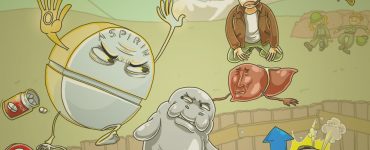Pharmacology is often one of the most challenging courses nursing students face – and one of the top reasons students struggle on the NCLEX.
Jehr Dotson (@nursejehr_), MSN-RN, reminds us in this student-focused webinar that it’s all about how you study. With the right approach and tools, pharmacology becomes less of a mountain and more of a manageable climb.
This NCLEX pharmacology review session breaks down how to retain what matters, recognize high-risk medications, and study in a way that works for you.
Why Nursing Pharmacology Feels Overwhelming
Most students don’t struggle because they don’t try hard enough. They struggle because they’re trying the wrong way.
Nursing students often fall into the trap of trying to memorize every single pharmacology drug without understanding the bigger picture. When you’re staring down hundreds of medications and side effects, it’s easy to burn out or shut down altogether. Instead, break down information into manageable pieces and focus on how drugs work, who they help, and what safety concerns they carry.
The key is to shift from memorization to application. You don’t need to remember everything. You just need to understand the essentials and learn how to prioritize.
NCLEX Pharmacology Study Tips That Actually Work
Boost retention by practicing active recall
Instead of rereading your notes, use active recall – a proven study method that strengthens long-term memory by forcing your brain to retrieve information without looking at the answer first. This technique not only improves retention but also mirrors the thinking required for NCLEX-style questions. Start by turning key facts into questions:
- What drug class ends in -pril?
- What’s the antidote for heparin?
- When should you hold metoprolol?
Create and utilize flashcards
Anki flashcards are a great tool for this – especially when paired with spaced repetition. Try reviewing 10-15 flashcards each night and again the next morning. Repeated exposure over time leads to stronger recall and long-term retention.
Group study material by drug class or body system
Instead of organizing your flashcards or notes alphabetically, try grouping medications by drug class or the body system they affect. This approach helps you understand how similar drugs work, spot patterns in their actions and side effects, and better apply that knowledge in NCLEX-style questions.
This visual pharmacology study guide is a great way to help break things down into manageable, memorable chunks. It walks you through proven techniques for remembering medications and side effects in a way that sticks.
Use Visual Mnemonics to Retain Pharmacology Drug Info Faster
Visual learners can benefit enormously from mnemonic devices, sketches, and illustrations that connect medications to vivid images. This isn’t just fun – it’s evidence-based learning that makes pharmacology more memorable.
Platforms like Picmonic’s Pharmacology Library are designed to support this kind of learning. With illustrated stories and memory cues tied to NCLEX pharmacology content, it’s a helpful resource for breaking down complex information into manageable pieces.
Visual mnemonics can help reinforce key material in a way your brain won’t forget.
High-Yield Drugs to Know for the NCLEX
It isn’t expected to memorize every medication. But there are important drugs to know for NCLEX – the ones that show up frequently in clinicals, exams, and board prep.
Common NCLEX Pharmacology Medications
Here are some high-yield drug examples:
- Lisinopril – ACE inhibitor; monitor for cough and angioedema
- Metoprolol – Beta blocker; hold if heart rate is below 60
- Lithium – Narrow therapeutic range; monitor for tremors or confusion
- Furosemide – Loop diuretic; monitor potassium and fluid levels
- Warfarin & Heparin – Risk for bleeding; know antidotes and labs
- Insulin – Understand peak times and symptoms of hypoglycemia
- SSRIs – Increased risk of restlessness; monitor mood changes closely
- Magnesium sulfate – Used in OB; monitor reflexes and respiratory status
NCLEX Pharmacology Drug Suffixes
Learning pharmacology drug suffixes can also save time. For example:
- -pril: ACE inhibitors
- -sartan: ARBs
- -olol: Beta blockers
- -statin: Cholesterol meds
Focus your NCLEX pharmacology review on these core drugs and concepts which will most likely pop up on the exam and in practice.
Recognizing Life-Threatening Adverse Effects in Nursing Pharmacology
The NCLEX tests whether you can identify the most critical adverse effects – the ones that require immediate nursing intervention.
Here are a few red flags worth knowing:
- Opioids: respiratory depression
- Digoxin: toxicity (e.g. bradycardia)
- Theophylline: seizures and arrhythmias (narrow therapeutic index)
- Insulin: hypoglycemia (confusion, shakiness, low blood sugar)
- ACE inhibitors: angioedema (airway risk)
- Warfarin/Heparin: easy bruising, bleeding, lab changes
When answering NCLEX pharmacology questions, always think in terms of safety. If a symptom involves airway compromise, neurological changes, or cardiac instability, that’s your priority.
Pharmacology NCLEX Practice Questions Reinforce What You Know
One of the most effective ways to prepare for NCLEX pharmacology is by answering practice questions. Start early and practice consistently – not just the week before your test.
Remember you want to focus on why an answer is right. Review rationales, and use each question as a chance to sharpen your understanding of side effects, nursing interventions, and patient safety.
Pharmacology might feel overwhelming at times, but with the right mindset and study approach, you can absolutely master it. Focus on the essentials, take it one concept at a time, and use tools that make complex information easier to remember. If you’re ready to simplify your studying and boost your confidence for the NCLEX, explore affordable study tools built for nursing students. With the right support, you’ll feel more prepared every step of the way.















